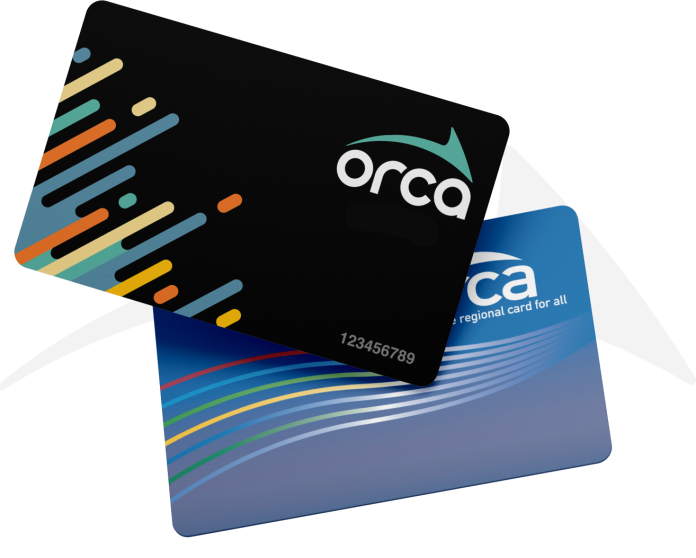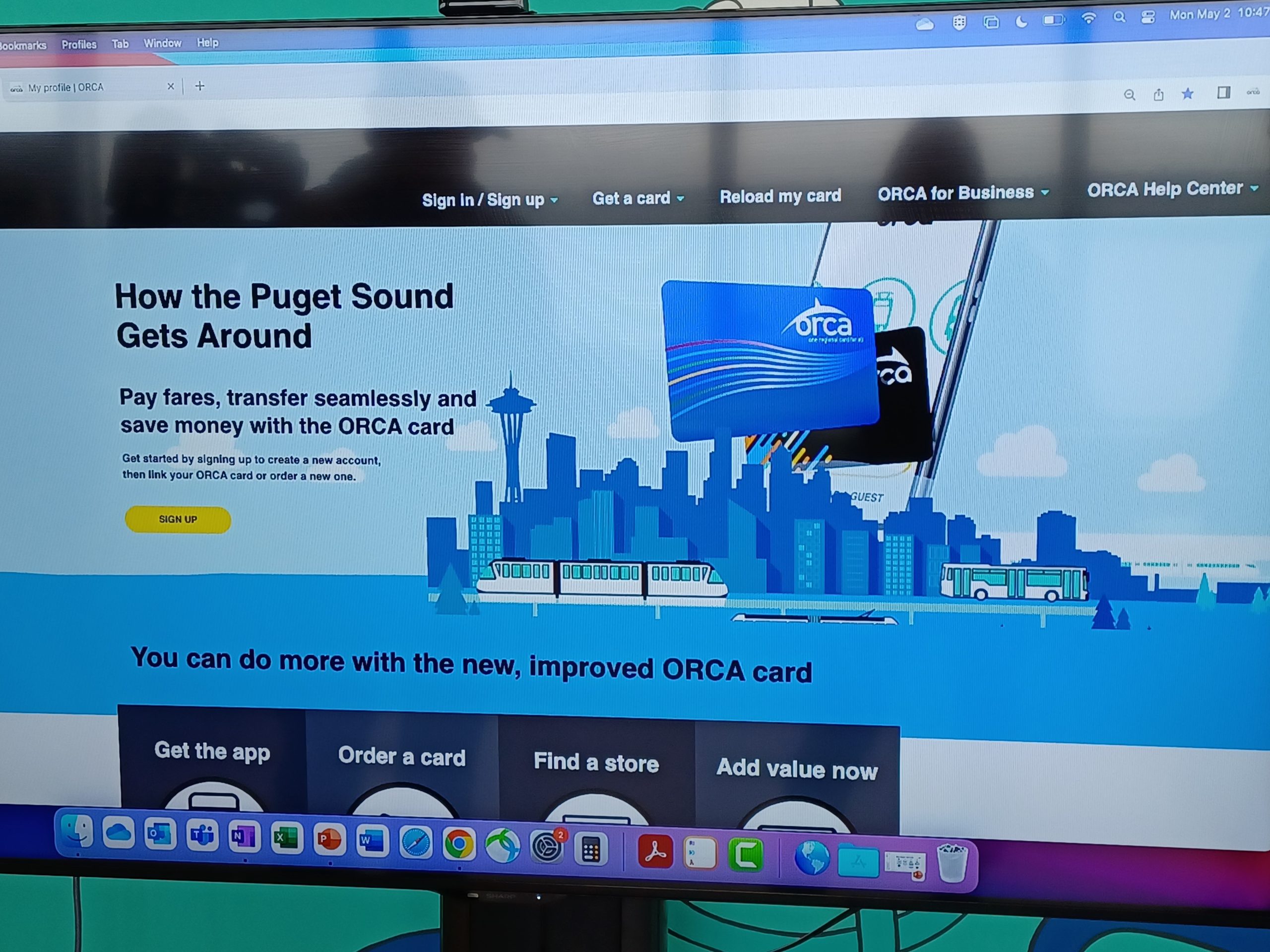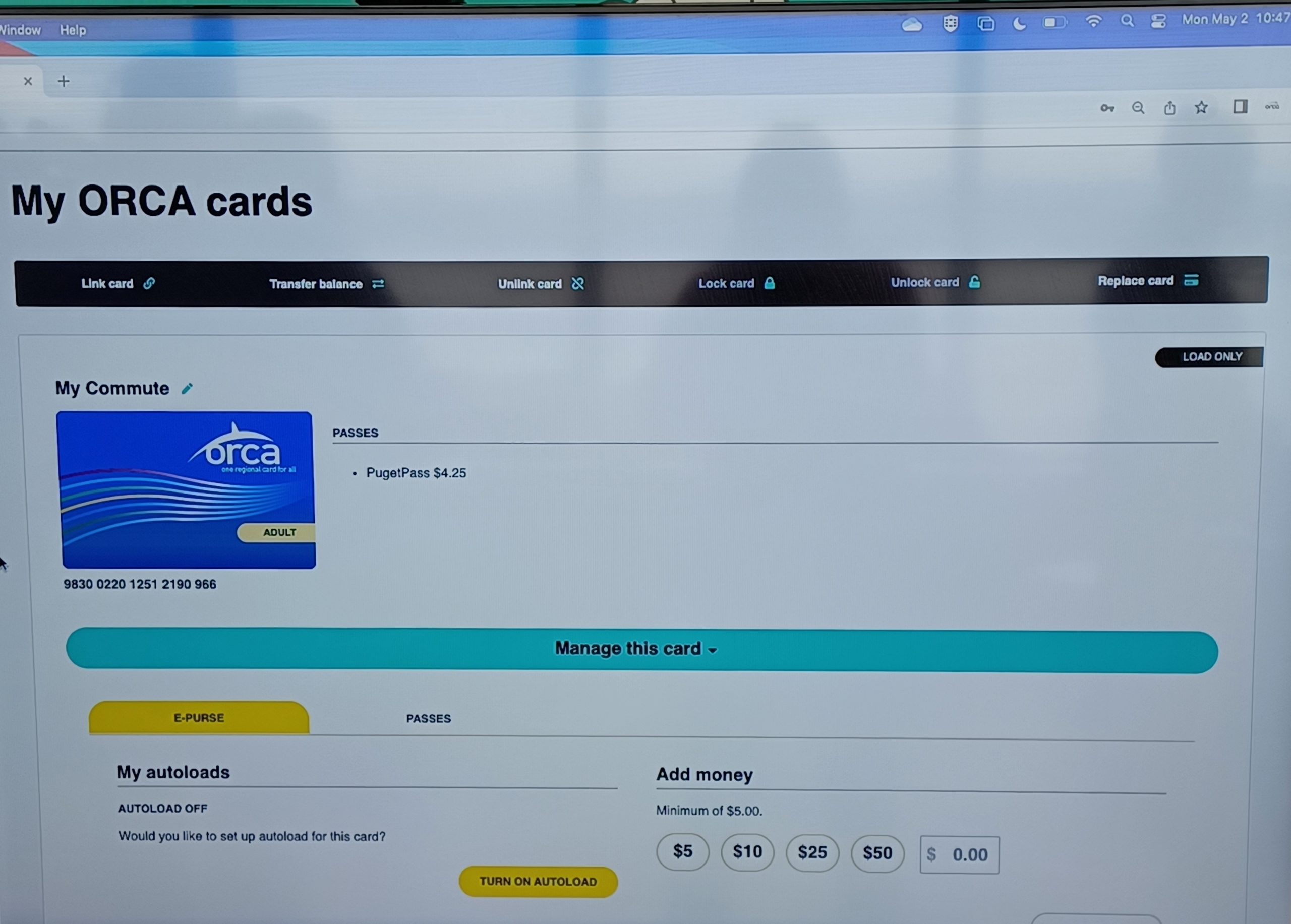
Although the preparations have been many years in the making, May 16th will represent the start of a new era for Puget Sound transit riders’ experience with the ORCA card system. In two weeks, users will have full access to the new MyORCA website and mobile app, where customers will be able to add value to their account in real time — no more waiting 24 to 48 hours before one can use added funds. Additionally, the new system will no longer have money that’s immutably tethered to a particular card. Instead, an account-based system will tie funds to the account, allowing funds to be transferred to other cards within the account if one is lost or damaged.
Transitioning to the new system will require brief downtime, so nearly all trips across all seven ORCA transit agencies will be free the weekend of May 14th and May 15th. Only drivers on Washington State Ferries will still be required to pay for their trip with an alternate payment method. Work to replace the over 6,000 ORCA devices, including bus consoles, ticket vending machines, and station scanners, will continue for the next several weeks.
A new smartphone app, available on iOS and Android phones, will be released as part of the launch. Users will be able to view their account balance and load additional funds from the app, but using the mobile app to pay your fare directly is a feature that’s coming in 2023.
The transfer of more than five million accounts to the new system is likely to come with hiccups, but staff hope to minimize inconveniences to riders. In a press release, transit users are advised to expect disruptions as account transfers proceed and equipment continues to be swapped out. New technology at stations and on buses will be backwards-compatible, meaning most users will not need to purchase a new ORCA card. However, any autoloads that riders have previously set up will need to be re-initiated under the new account system after May 16th. ORCA Program Manager Scott Corbridge shared, “We know that big changes aren’t always smooth sailing… [but] we promise to do our best to limit our impact.”
Later this summer, more retail locations will also begin selling ORCA cards and allow riders to add fare media. Staff expect to expand to 250 retail locations (from the current 135) because new ORCA cards will have a bar code that can integrate with existing gift card infrastructure. Staff hope that the simpler tech will enable even more retailers to join the network down the line, from big-box retailers to mom and pop shops. The new website will also have a searchable map of ORCA-selling retailer locations — a sizeable upgrade from the current static list.
This ease does come at a cost to rider experience though: because current ORCA cards do not have a bar code, riders looking to add funds to their account in a retail store will need to get a new card. With the new system, the price of ORCA cards has been reduced from $5 to $3, and reduced fare customers will have access to a free card replacement program. More details on this program are to come later this year. A $5 transit card has put the Seattle metro on the high end for transit passes, with a $3 card much more in line with peer transit agencies around the country.
With the ORCA system representing a collaboration between seven different agencies, a lot of features and aspects of fare collection are subject to decisions from the individual agencies. For one, this update will not involve relocating card readers at stations to be in more logical locations — those are dependent upon station infrastructure and would require input from the respective agency. Additionally, future integration to pay for other services with an ORCA card, like bike parking stalls, bikeshares, or carshares, will be subject to agency direction.
However, staff are confident that the new system has been created with the flexibility to allow such uses in the future. Brittney Esdaile, ORCA Director, noted during a press conference, that “knowing that there’s interest in [integration], we’ve built a system that is completely flexible to be able to add additional payment methods, add features with other modes of transportation, and pay for other services.” INIT, the organization contracted to lead the new system rollout, mentions on their website, “[Our] open architecture platform will also allow for additional transport options such as bikeshare, carshare and Transportation Network Companies (TNCs) to fully integrate with the next gen ORCA system in future project phases, providing central Puget Sound transportation customers with options for a full end-to-end mobility solution.”
These system changes come at a hefty price of $80 million, already collected over a seven-year timeframe. $40 million is paying for the replacement of the 6,000 ORCA devices across the seven agencies, and an additional $40 million will be spend on the back end improvements and the expansion of retail locations. Staff expect the physical infrastructure to have a lifespan of at least 12 years, but believe that the flexibility of the back end system will enable it to be useful for many years beyond that.
To familiarize users with the system changes, staff will be hosting two sets of virtual open houses. Business customers can attend a presentation at 2pm May 3rd. Transit riders can attend one of two open houses tomorrow at 12 pm and 7pm Combined with the 2,200 ad placements across the seven agencies to inform riders of system changes, staff hope that these measures will be enough to adequately get the word out in the community before the May 16th change.
ORCA-participating agencies aren’t hyping up the weekend transit fare holiday on May 14th and 15th yet, but it could provide a boost in weekend ridership and maybe even take some cars off the road. It will also provide riders with a memorable transition between the old and new ORCA systems, as the central Puget Sound’s transit network flips the switch on a change that has been a long time coming.
Clarification (05/05/2022): Article was updated with clarification regarding how funds are stored within the new account-based system.
Chris Randels is the founder and director of Complete Streets Bellevue, an advocacy organization looking to make it easier for people to get around Bellevue without a car. Chris lived in the Lake Hills neighborhood for nearly a decade and cares about reducing emissions and improving safety in the Eastside's largest city.



